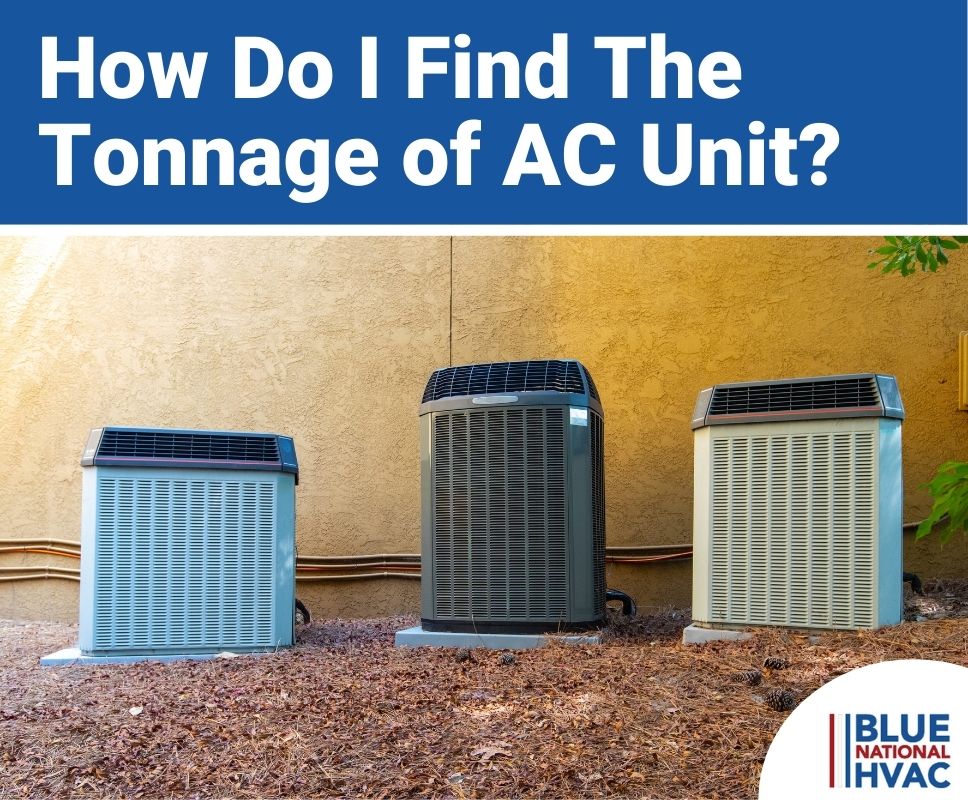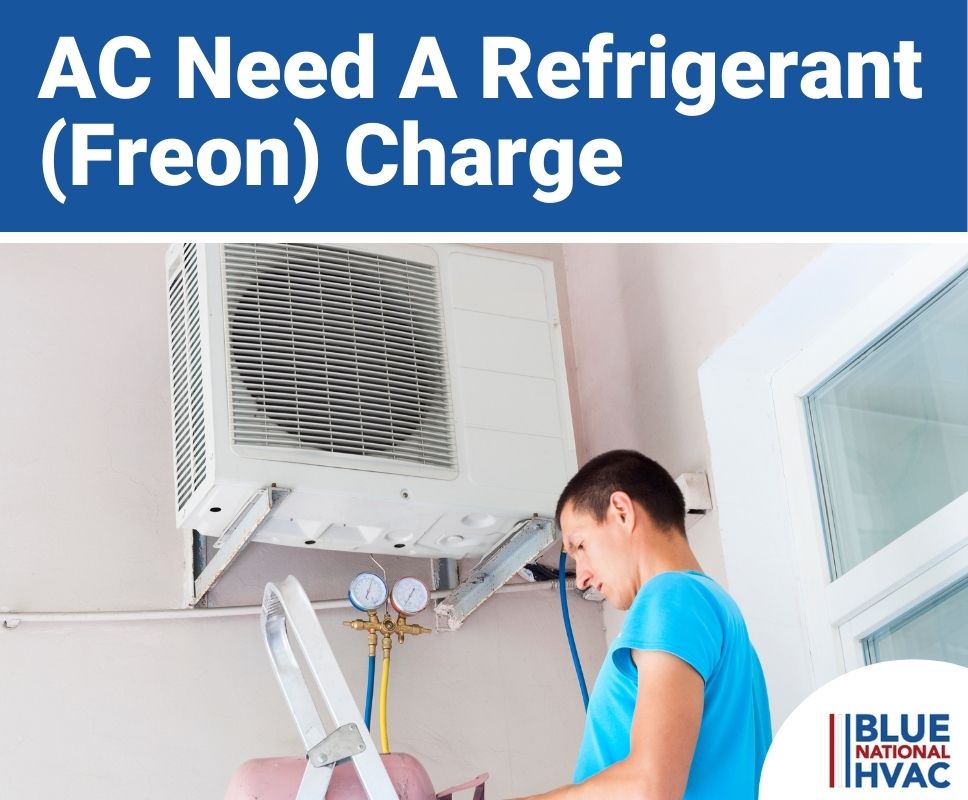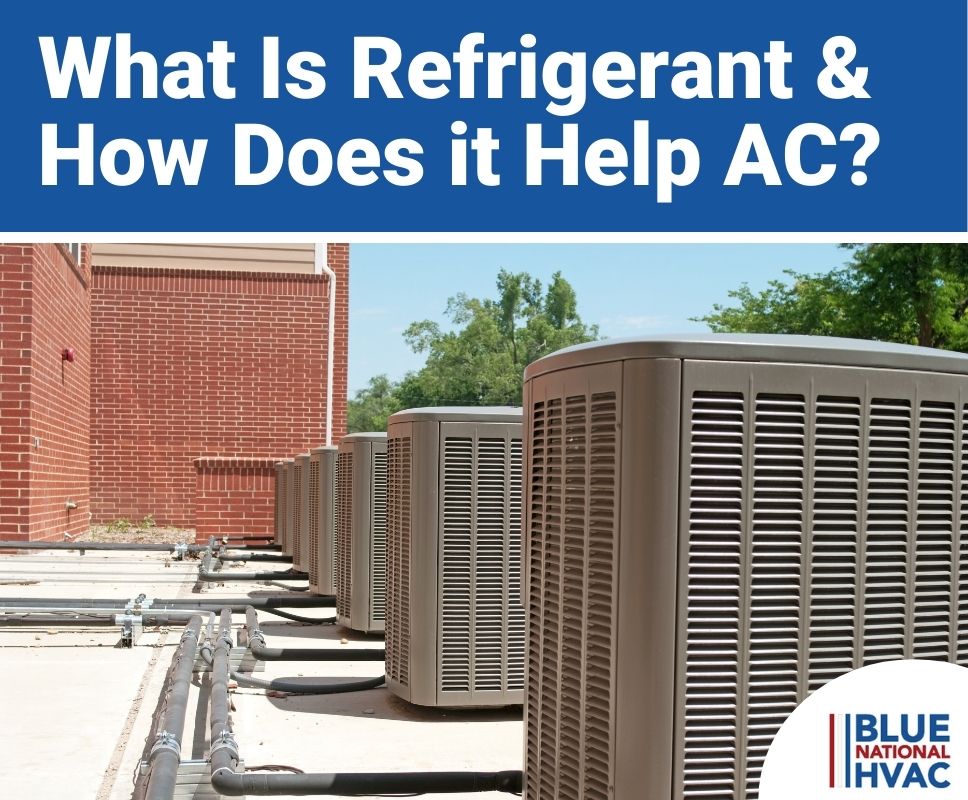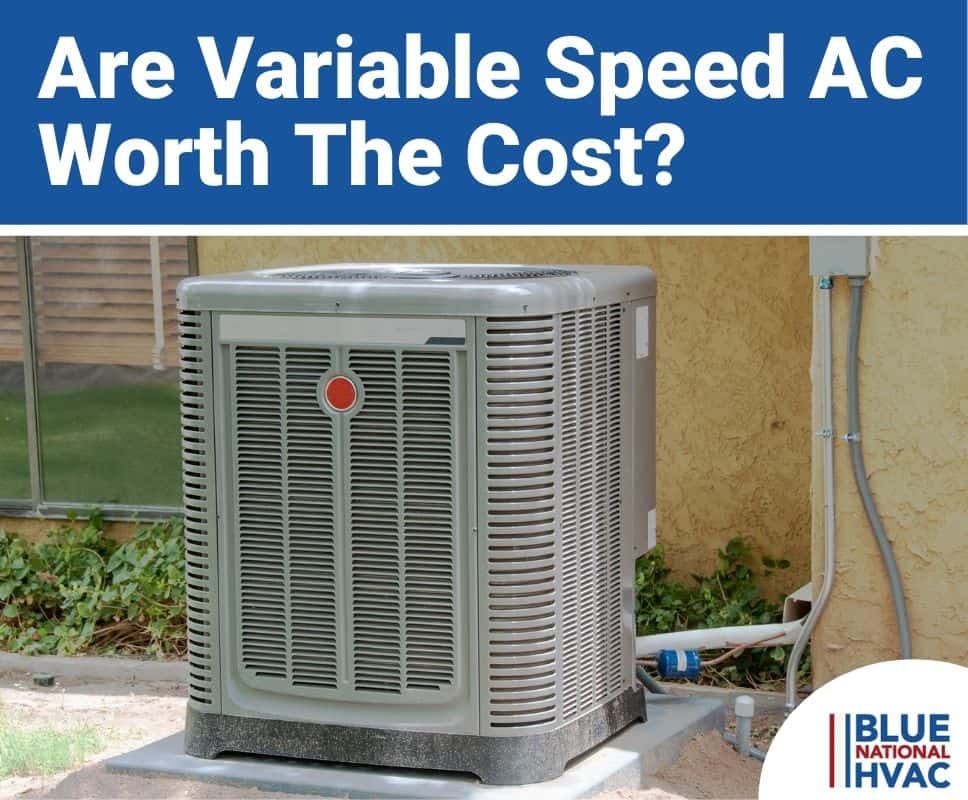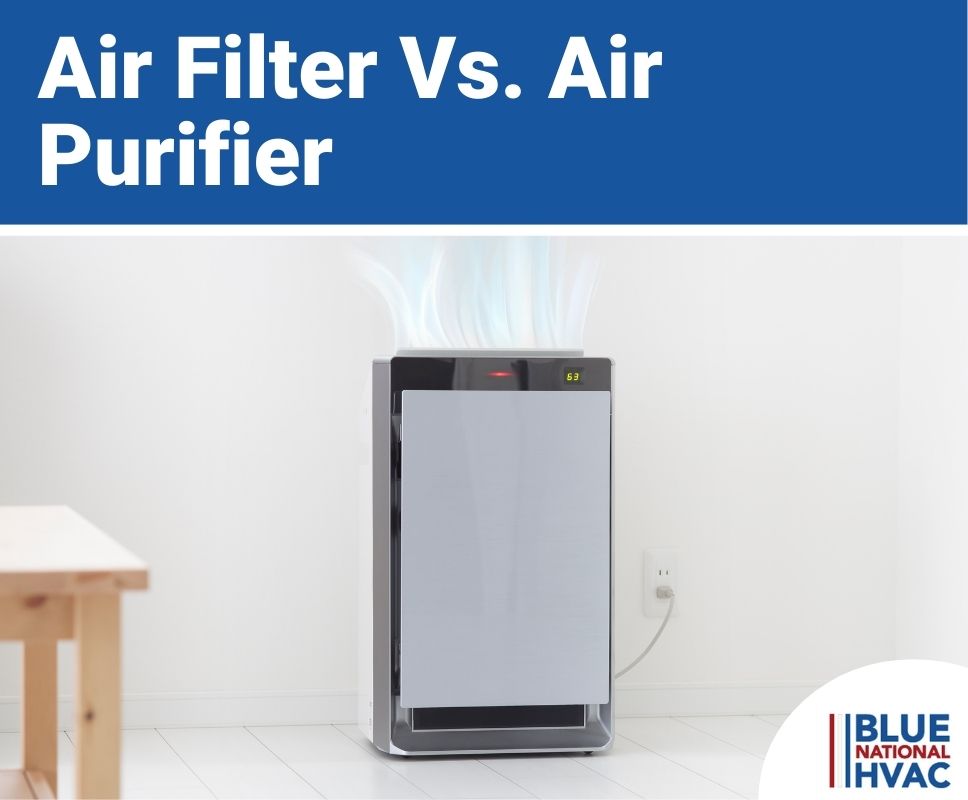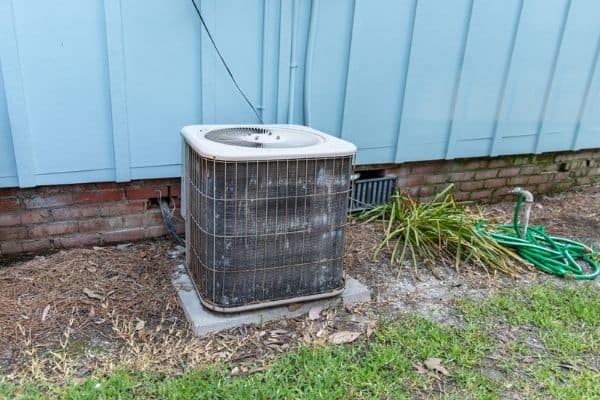What Is AC Tonnage, And Why Does It Matter?
AC tonnage, ton of air conditioning, or AC tons, is the size of your air conditioner. However, it does not refer to the air conditioner’s physical size but rather its cooling capacity.
How the cooling capacity of air conditioners is rated dates back before air conditioners were invented. Initially, large ice blocks were used as a method of refrigeration to cool buildings, and these blocks were weighed in tons.
For example, building owners got used to ordering a ton of ice for their buildings. They knew a 3-ton ice block could sufficiently cool their building.
Once air conditioners became commercially available, they were also rated in tons to equate their cooling capacity to blocks of ice easily. Since then, the rating has stuck. However, tons are often paired with a BTU (British Thermal Unit) rating these days – 1 ton AC equals 12,000 BTUs.
The tonnage of your air conditioning unit matters because it tells you how much space it can cool. It is used to size the air conditioner for your home appropriately. Just like knowing what pants size fits your body ensures they will fit when you buy a new pair, knowing the proper AC tonnage for your home will ensure a new and replacement unit will be able to cool your home sufficiently.
Where Do I Find MY AC Tonnage?
You can find the tonnage of your air conditioner on a plaque mounted on the outdoor unit (condenser).
Find the model number, which will consist of a combination of letters and numbers. Within the model number, there will be a two-digit, even number. This two-digit number multiplied by 1,0000 represents the BTU rating of the air conditioner.
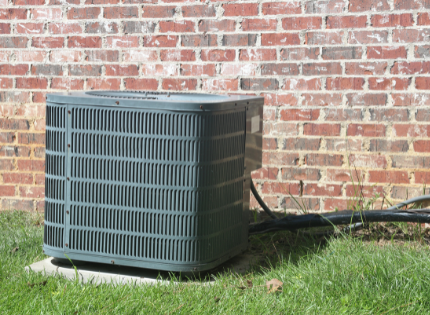
For example, if you find 18 in the model number, the BTU rating is 18,000 BTUs. And since 12,000 BTUs equals 1 ton, we can do the math and determine that the AC tonnage is 1.5 tons.
To make things easier for you here is an easy table reference on what tonnage the two-digit number represents:
| Two-digit number | BTUs | Tons |
| 12 | 12,000 | 1 |
| 18 | 18,000 | 1.5 |
| 24 | 24,000 | 2 |
| 30 | 30,000 | 2.5 |
| 36 | 36,000 | 3 |
| 42 | 42,000 | 3.5 |
| 48 | 48,000 | 4 |
| 54 | 54,000 | 4.5 |
| 60 | 60,000 | 5 |
| 66 | 66,000 | 5.5 |
Why Should You Size New And Replacement Air Conditioners?
Sizing a central air conditioner or heat pump for your home is a critical step in the selection process. If it is too small, your home will never be cooled adequately, it will run constantly, your indoor air quality will suffer, and your electricity bill will skyrocket. On the flip side, an oversized AC unit presents issues too.
This means your air conditioner has to be sized just right to cool your home efficiently. Getting an air conditioner in the Goldilocks zone can be accomplished based on the square footage of the house, or through the Manual J Calculation.
Here are the top reasons why sizing an air conditioning unit is essential:
Efficiency
When an air conditioning unit is sized correctly for your home, it will run at its highest possible energy efficiency. For example, if it is undersized, the AC unit will constantly run and use an excessive amount of energy, even if it has an excellent SEER rating.
On the other hand, the same can be said for an oversized unit. It will short-cycle, which will lead to higher energy costs as well.
Proper Cooling
When you get a new air conditioner, you want your home to be cool and comfortable. However, your home will have less than ideal temperature conditions (a high amount of heat with low airflow) unless it is sized correctly.
Equipment Lifespan
Oversized and undersized air conditioners are put under a high degree of stress and strain, shortening the equipment lifespan. Components such as the compressor, thermal expansion valve, blower, and others wear down faster. This could not only lead to multiple costly repairs but a premature replacement.
Humidity
Besides not being able to control the home’s temperature to ideal conditions, improperly sized AC units also struggle with humidity control.
Undersized units will run excessively, which could cause the humidity to be too low. On the other hand, oversized air conditioners don’t remove enough humidity, leaving your home feeling damp and muggy.
What Factors Determine The Size of The AC Unit To Install?
The size, or tonnage, of an AC unit is determined through various factors outlined in the Manual J Calculation (or load calculation). Alternatively, it can be estimated on square footage alone. However, unlike the load calculation, it only provides an approximation.
Therefore, it is best to perform a Manual J Calculation on your home to determine precisely how many tons will cool it effectively. Here are some of the crucial factors of the Manual J Calculation:
Square Footage
The size of the home is arguably the most critical factor in sizing your AC system. A smaller home of 1,200 square feet will not need the same size air conditioner as a larger home of 2,400 square feet.
This is intuitive to most, but you might be surprised to find out that it isn’t strictly linear. Just because one home has double the square footage of another, it doesn’t necessarily mean it needs double the AC tonnage, as there are other factors that influence AC size.
Insulation
If your home lacks insulation, you will need a larger AC unit to cool the house. The reason is that your home is letting more heat in from the outdoors faster than a home with high-quality insulation.
Suppose you’re getting a new or replacement air conditioner. In that case, it might be more economical to pay for extra insulation (like blown-in attic insulation) than paying extra for a larger-sized AC unit. Extra insulation will also lower your electricity costs.
Climate Zone
The region you live in also factors in the size (tons or BTU) of the air conditioner you will need. For example, if you live in a mild climate zone that experiences summers with moderate temperatures, you won’t need as many tons as a home in an area with extreme heat.
Natural Shade
The amount of natural shade your home receives factors into the Manual J Calculation to determine the proper AC unit size.
If your home has no shade, the infrared heat from the direct sunlight will warm it up. However, if trees fully shade your home, it will not experience as much warming from the sun’s infrared radiation. This means a shaded home will need fewer BTUs than an unshaded one.
What Are The Negative Effects Of An Oversized AC?
Getting an oversized AC unit for your home might sound like a good idea at first. Bigger is better, right? In this case, it is not.
An oversized air conditioner won’t properly cool your home. It will be too powerful for the home and cool it too quickly before shutting off.
Oversizing an air conditioner is akin to filling a water bottle with a fire hose. You’ll get some water in the bottle, but once you turn the faucet off, your bottle won’t be close to full. An oversized air conditioner will blast a ton of cool air into the home too quickly, and think it’s completely cooled when it is not.
Typically oversized units will turn on and off right away, normally running in spurts of less than 5 to 10 minutes. This is called short-cycling– it limits the cooling performance, increases your energy bill, and wears out your air conditioner due to all the starts and stops.
High Humidity
Since an oversized AC unit will be turning on and off in short intervals, it won’t have the time to remove humidity from the air. In this case, your home will feel damp and muggy.
Some signs of high humidity in the home include:
- Condensation on windows
- Wet surfaces
- Mold growth
- Clammy skin
- Smell of mold or mildew
Money Pit
Oversized air conditioners incur extra expenses in multiple ways. First off, higher tonnage units cost more, so if you’ve installed an oversized unit, you’ve overpaid right off the bat.
Secondly, their frequent starting and stopping in short intervals (short-cycling) uses a lot more energy. AC units use less energy when they run for longer intervals with fewer starts and stops.
Lastly, frequent short cycling incurs a lot of wear and tear on the unit’s major components. This leads to more frequent AC repairs, which can be costly.
Decreased Lifespan
Short cycling causes excessive wear and tear to air conditioners.
Imagine starting your car, waiting 5 minutes, turning it back off again, then repeating multiple times an hour. As you can imagine, this is not efficient and not good for the starter.
This is essentially what an oversized HVAC system experiences. It leads to fast equipment failures and shortens the lifespan of the AC unit.
What Are The Negative Effects of An Undersized AC?
Like oversized AC units, undersized ones also adversely affect the home and the air conditioner itself.
Inadequate Cooling
When an air conditioner has too little cooling capacity, it won’t sufficiently cool the home.
For example, let’s say your home needs 4 tons (48,000 BTUs) for optimal cooling, and you only have a 2 ton unit. In this case, your air conditioner will never have enough capacity to cool your home. It will constantly run, and it will never reach the setpoint on your thermostat.
High Energy Usage
Since an undersized air conditioner will be running for long periods, it will consume an extreme amount of electricity. Plus, your home will remain too warm while you pay an expensive electricity bill.
Shortened Lifespan
Undersized air conditioners will rarely get a break from their cooling duties. Excessively running most hours of the day will wear down the air conditioner’s components, leading to a lifespan that is much shorter than average.

